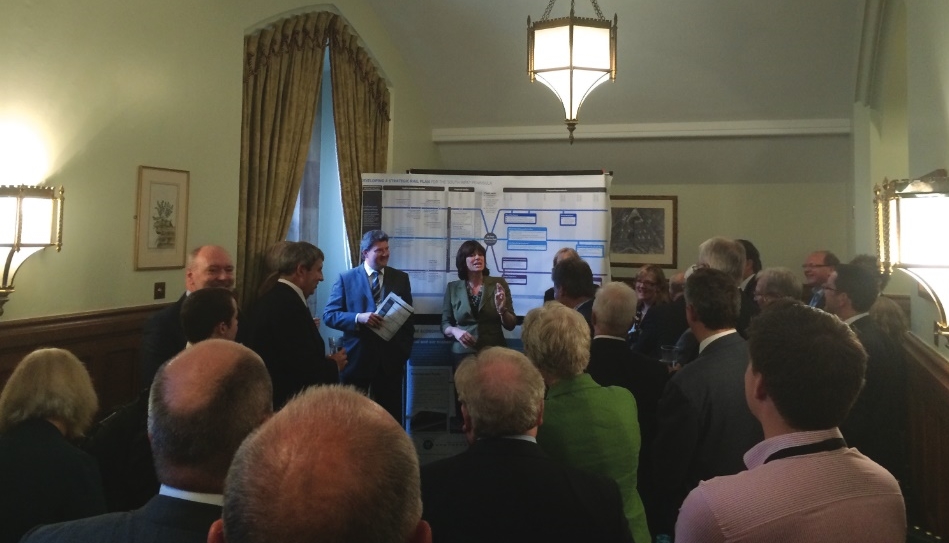13.10.15
South West rail taskforce focuses on flooding, journey times and capacity
The Peninsula Rail Task Force, appointed by the Department for Transport to recommend plans for improving the south west’s rail network, has published its first interim report today (13 October).
It has retained its initial three-point priority, focusing on the resilience of the network, journey time improvements and increasing capacity:
- Resilience: Flooding schemes at Cowley Bridge and Somerset levels, Dawlish seawall and cliffs stability, GRIP 2 studies for passing loops between Exeter and Yeovil for mainline services.
- Journey Time Improvements: Part 1 – Maximisation of the benefits of the AT300 introduction in December 2018; Part 2 – GRIP 2 study between Westbury and Penzance to inform CP6; and Part 3 – Pre-GRIP study to close the gap between GRIP 2 outputs and PRTF ask.
- Increasing Capacity: through the GRIP 2 study, between Exeter and Yeovil, evaluation of the Northern Route, and the Dawlish Line.
The taskforce is comprised of MPs, train operating companies, bus operators and special interest groups in the region. Members from five local councils and two enterprise partnerships are involved and a designated board oversees the work of the whole partnership.
Following its publication of a three-point plan, it was selected by the government to work alongside senior advisers from Network Rail in devising a 20-year strategy plan for the south west region – all of which will be included in a final report set to be presented to transport secretary Patrick McLoughlin in 2016.

The group has now published an interim report, following a two-week consultation period outlining their vision for a local rail network “truly fit for the 21st century”.
Chair of the task force’s board, Cllr Andrew Leadbetter, said: “We want a network that is resilient, that is on par with the rest of the country, with shorter journey times and enough capacity to meet the needs of our passengers.
“It is vital that we continue the momentum gained over the last few months – we want to show that there is a real business case for improving our network for the government to commit to our connectivity.
“New trains will give us scope to improve our journey times, but we cannot take full advantage if they are running on old, vulnerable tracks. Electrification is helping many communities across the country, but it’s not going to impact here.
“So now is the time of us to identify where the gaps are in our network and what we’re going to do about them. With the support of Network Rail and the DfT, we want a plan of delivery that is realistic and enables real results.”
The new report also other considers other areas, including giving future franchises “porous boundaries” to enable easy and innovative cross-boundary improvements to services.
It said: “It is important to recognise that there is huge advantage for the South West Peninsula economy and ‘UK plc’ from early improvements in track and signalling to maximise the faster journey time benefits of the new AT300 Intercity trains when they are launched in 2018.”
The final report is expected to feed into Network Rail’s CP6, CP7 and CP8 and will “complement and build on” the recently published Western Route Study.
It also hopes that part of the CP7 plans for the region will include electrification to Paignton, Plymouth and Penzance, as well as of the cross country line to Bristol and additional rail lines.